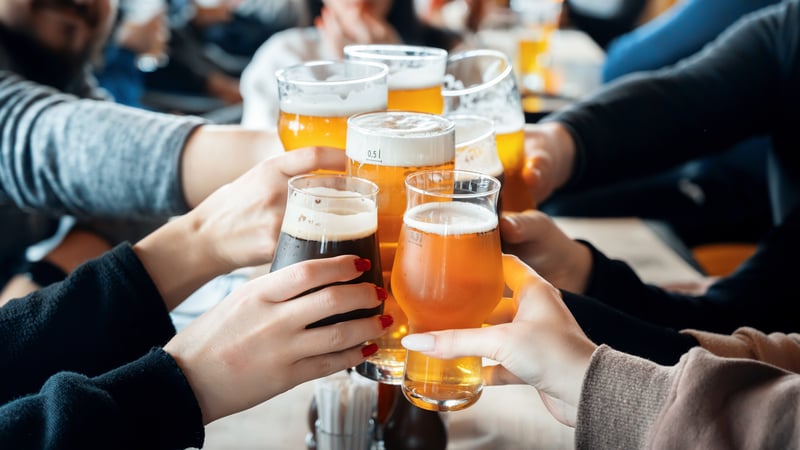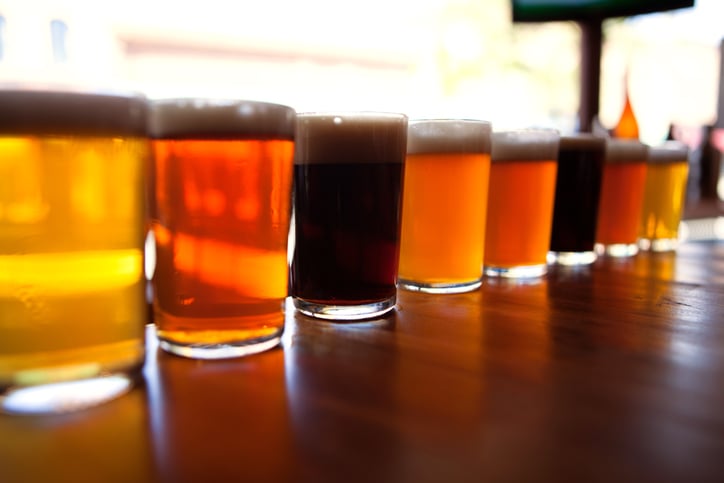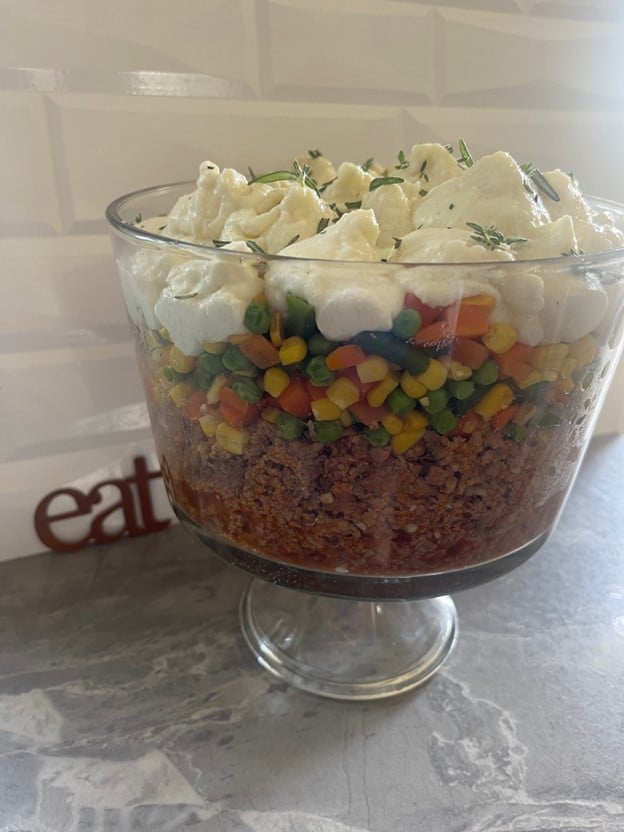Moderation and Mindfulness: Drinking Beer to Minimize a Hangover

Few holidays are as closely associated with beer drinking as St. Patrick’s Day. And during the celebrations, it’s easy to get a wee bit carried away and have one (or a few) too many beers, leading to a dreaded hangover that can slow you down for at least one day. Fortunately, mindful beer drinking can help you moderate your intake to minimize or even avoid a hangover.
But first, why is drinking associated with the St. Patrick’s Day celebration?
From Religious Feast to Cultural Celebration
St. Patrick’s Day, March 17, began humbly as a religious feast to commemorate the patron saint of Ireland. St. Patrick was credited with bringing Christianity to the people of Ireland back in the fifth century.
The day occurs during Lent, when meat and drinking are restricted, if not disallowed, for many Christians. Yet, the restrictions were lifted for this celebration and feast, and people were (and are) allowed to indulge during the festival.
More recently, the holiday has developed into a broader celebration of Irish culture after Irish immigrants brought it to the U.S. and worldwide. Today, St. Patrick’s Day is less of a religious observation and more a celebration of the Irish culture. People enjoy parades, dress up in green (and drink beers dyed green), and enjoy music and dancing to celebrate. Often, those celebrations take place in Irish pubs and bars offering beers and whiskey with boisterous toasts of “Sláinte” (pronounced slahn-cha), which translates to “Health.”
If you’re in any place where folks are raising their glasses, you’ll likely see the iconic beer associated with the Irish: Guinness. This dark Irish stout has become synonymous with Irish culture and St. Patrick’s Day celebrations. Despite its robust flavor and rich color, it’s also surprisingly low in calories (126) and carbs (10 g).
Mindful Beer Drinking to Minimize a Hangover
You don’t have to be Irish or be of Irish decedent to celebrate St. Patrick’s Day. You may, however, want to wear a touch o’ green as a nod to the “Emeral Isle” and its lush countryside. You also don’t have to overindulge in the rich foods associated with Ireland, like corned beef and cabbage, Irish stew, soda bread, shepherd’s pie, Guinness pie, or a full Irish breakfast with bacon, sausages, eggs, tomatoes, mushrooms, baked beans, and more. (Though you could enjoy a few bites, just to honor the Irish culture and heritage! ☘️)
You also don’t have to have any beer. But if you do drink, you’ll want to do so in moderation to prevent feeling not so fresh the next day. And that’s where mindful beer drinking comes in.
Indeed, a mindful approach can help reduce alcohol consumption any time. Mindfulness is simply the practice of being fully aware, present, and engaged in the moment, without judgment. This can help you better understand yourself so you’re aware of triggers that could lead to consuming too much food or drink. Mindfulness can also help you develop healthier coping strategies. So, when you’re faced with stress, anxiety, or other emotions, you can choose how to respond.
Mindful beer drinking benefits include:
- Moderating your drinking
- Staying hydrated
- Enjoying quality over quantity—so you can choose beers you appreciate and want to savor more slowly
- Recognizing when to stop
- Ensuring you’re eating adequately as food also slows down the absorption of alcohol.
Through this practice, you can learn to observe your feelings and the thoughts that come with them without acting impulsively. It can be particularly useful because it opens space between when you want a drink and when you take a drink. It allows you to be more conscious about your choices. In fact, several studies have found that mindfulness can help reduce alcohol and food overconsumption and improve digestion.
While many people think of mindfulness only when alone, it can also help when you go out socially—for St. Patrick’s Day or any other occasion. To help you stay more mindful when out with others, setting your intentions before you head out is a good idea. For instance, plan how many drinks you’ll have before you are immersed in the festivities or have another round with friends.
Before you sip, slow down. Pay attention to each drink, savoring the taste and smell, rather than just gulping down your drinks or gobbling your food. This allows you to enjoy the food and drink fully. Remember to pause and check in with yourself every once in a while. See how you’re feeling physically, mentally, and emotionally. Are you enjoying the drink in the moment? Or are you drinking to calm or numb uncomfortable feelings?
Remember, it’s also okay to say no and turn down a drink, even if someone else is buying. Keep your preset limit in mind and politely refuse if you have reached it. Consider practicing how you’ll say no before you’re caught up in the moment. The focus should be on enjoying the time with friends anyway, rather than the drinking itself. You can talk, dance, and get into the enjoyment of the gathering.
You can also enjoy a refreshing glass of water or a non-alcoholic beverage, which can slow you down and give you a moment to check in with yourself. Staying hydrated is another important way to reduce the risk of a hangover.
In addition to practicing mindfulness to help reduce the risk of a hangover after a social gathering, you can also:
- Choose drinks that are lighter in color. You see, congeners, which are produced during fermentation for darker beers and other types of beverages, have been associated with harder hangovers. Choose lighter color beers to help minimize the “brown bottle flu” the day after a celebration.
- Eat a good, healthy meal before drinking, which can slow the absorption of alcohol and thus help reduce the likelihood of a hangover. Foods rich in quality protein, healthy fats, and fiber-rich carbohydrates tend to be especially effective.
- Key nutrients may also help your body remove alcohol toxins. For example, B vitamins are depleted when drinking. And milk thistle may help support your liver. Vitamin C helps combat oxidative stress. NAC, which is a precursor to glutathione, may help detoxify acetaldehyde, a toxic byproduct of alcohol. Electrolytes can help the body rehydrate. And probiotics may help restore balance in the gut to aid your recovery after having a few too many.
- Avoid mixing types of alcohol. If you’re drinking beer, stick with beer rather than adding shots or cocktails later in the night.
You can also continue to enjoy beer throughout the night—just without the alcohol. NA or non-alcohol beers have become increasingly popular, and a ton of delicious options are available, many of which taste like high-quality beer! Others offer more of a hint rather than a full flavor but are often also really low in calories. To see some of our favorites, check out the best NA beers. You can find every popular style—from IPAs to lagers to stouts. Guinness even has an NA version that tastes so good and so close to the original, you may not even realize it’s NA.
With no alcohol, there’s no hangover. Plus, NA beers may help you stay hydrated, many are lower in calories than regular beers, and of course, you can still drive safely after enjoying a couple. In short, choosing NA beers is a simple strategy for mindful beer drinking without the negative consequences that often go hand in hand with drinking alcohol.

Mindful Beer Drinking Wrap-Up
Whether celebrating St. Patrick’s Day as part of your heritage or just enjoying time out with friends, with these mindful beer drinking tips, there’s no need to suffer the unwanted effects of having a few too many drinks—including the headache, gas, nausea, fatigue, moodiness, and irritability. Not exactly a fun way to spend the next day! By planning ahead and drinking mindfully (and perhaps choosing NA beers instead), you can enjoy the celebrations to the fullest extent without the regrets of overindulging.






